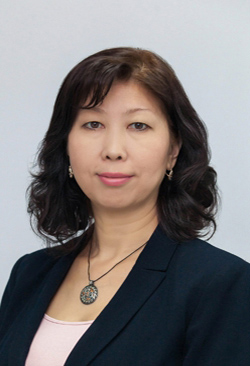February 2024
Here we discuss procedure for challenging of trademarks already registered with the National Institute of Intellectual Property in the Board of Appeals.
Challenging а trademark registration may be initiated by any interested party by filing an opposition with the Board of Appeals of the Ministry of Justice of the Republic of Kazakhstan (the “Board of Appeals”) or by filing a statement of claim with a civil court.
The Board of Appeals shall consider oppositions filed against registration of trademarks if the trademarks have been:
1) registered in violation of the provisions of Article 6 of the Trademarks Law, that means on unconditional grounds and grounds that are false and mislead consumers;
2) registered in violation of Article 7 of the Trademarks Law, that means on relative grounds, based on existence of prior rights of third parties;
3) registered in the name of a representative of the trademark owner in one of the country-members of the Paris Convention for the Protection of Industrial Property, without authorization of the trademark owner;
4) registered in violation of the earlier priority rights to a tradename.
The above types of cases cannot be immediately addressed to the court, but must firstly be examined by the Board of Appeals.
Oppositions on the grounds of identity and confusing similarity with trademarks, well-known trademarks, designations applied for registration with earlier priority may be filed within five years from the date of registration of a trademark. For all other grounds, opposition may be filed during the entire term of validity of the trademark.
The interest of person filing the opposition must be confirmed. The legislation does not provide what proof of interest must be shown, however as a rule it is an existence of prior rights to the trademark, copyright –, a refusal to register a trademark in the name of the interested party, a filed application for a trademark or similar designation, etc.
Materials supporting arguments of the opposition and a power of attorney for a representative should be attached to the opposition. The opposition and relevant materials shall be filed in two copies in two languages: Kazakh and Russian. Upon receipt of the opposition, the Secretary of the Board of Appeals forwards one copy of the opposition to the owner of the challenged trademark. Prior to review of the opposition by the Board of Appeals, it is possible to make additions, file a reply to the opposition and submit other materials.
The opposition should be examined by the Board of Appeals within six months. As a rule, one month before the end of this period, the secretary of the Board of Appeals forwards a notice to the parties of the date of meeting of the Board of Appeals where the opposition will be considered. Applications to shorten this period are not accepted.
Meetings of the Board of Appeals are held online on the Zoom platform. Such meetings are attended by members of the Board of Appeals (at least five persons), a representative of the National Institute of Intellectual Property and representatives of the parties. The Board learns the arguments of parties, then opinion of the National Institute of Intellectual Property and normally asks for clarifications.
The meeting of the Board of Appeals may be postponed in case of non-appearance of one of or both parties, upon receipt of the appropriate request of the applicant of the opposition, and if additional time for review of the materials is required.
The right of the challenged trademark owner to request postponement of examination of the case is not provided by the legislation, which in our opinion is wrong as it is often the case that challenged trademark registrations belong to foreign parties, and copies of oppositions are forwarded by regular post and thus delivery may take even several months, or sometimes the oppositions are not delivered at all. Only a notice of receipt of the opposition in the English language is forwarded to the foreign owner of a trademark and all other materials. The opposition itself is forwarded in Russian, accordingly the owner needs time to translate the materials, find an experienced and English speaking patent attorney in Kazakhstan, and enter into the relevant engagement agreement.
Unfortunately, sometimes in Kazakhstan the title of Patent Attorney is obtained only for a general ability to take care of such cases or for prestige purposes and not with an aim to practice the trademark or patent law/ Some patent attorneys do not speak foreign languages (even English as in most cases knowledge of the English language is sufficient for work with foreign applicants and IPR holders). Here we do not describe the powers of registered patent attorneys, but we would like to emphasize the difficulties for a foreign trademark owner due to the short timeframes provided for examination of cases.
As a result, meetings of the Board of Appeals often take place in the absence of the challenged trademark owner. In view of the above, we believe that owner of the challenged trademark should also have the right to request postponement of the case and suggestion of such amendments has been submitted to the Ministry of Justice.
Ones the parties and called external experts provide their arguments; the Board of Appeals issues its decision. It is done first verbally and a written decision shall be issued and forwarded to the parties within ten working days.
Decisions of the Board of Appeals may be appealed in the Administrative Court of the Astana City within one month of the date of receipt of the decision in writing. We will describe the procedure of appellation of the decision in court in the next article.

 Saule Kulzhambekova
Saule Kulzhambekova